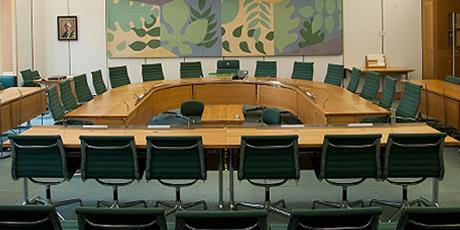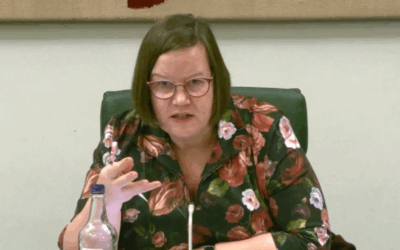A new PAC report argues that the government is “missing the opportunity to recover billions”
- Tax Debt stands at £41.6bn, over £20bn more than pre-pandemic levels, with HMRC estimating it will take “some years” for this debt to be reduced.
- New PAC report argues that the government is missing the opportunity to recover billions by not resourcing HMRC compliance effectively.
- Chancellor Jeremy Hunt to consider giving HMRC more funding if the department can improve upon the 18:1 return on investment currently seen with compliance activity.
A new report by the Public Accounts Committee (PAC) has argued that “The government is missing the opportunity to recover billions in lost revenue by not resourcing compliance.”1 The report also highlights disappointment in the amount of money lost to fraud and error in the Covid-19 support schemes, stating that there is a “moral duty to pursue fraud to ensure fairness and maintain a level playing field for individuals and businesses that did not abuse the schemes, rather than HMRC being seen to reward those that were dishonest.”
The committee also recommended that HMRC publish a three-year plan to monitor and improve customer service, saying that taxpayers are “still not receiving an acceptable level of customer service”
Tax Debt
Much has been made of the tax debt owed to HMRC,2 with Dame Meg Hillier, the PAC Chair, saying “the eye-watering £42 billion now owed to HMRC in unpaid taxes would have filled a lot of this year’s infamous public spending black hole.”
HMRC’s Annual Report and Accounts for 2021-2022 state that “The debt balance hit its lowest point since the start of the pandemic in January 2022 at £38.8 billion. Since then, it has steadily increased to £41.6 billion at the end of March 2022.” The main reason for the tax debt increasing is that as people struggled to pay taxes throughout the pandemic, HMRC allowed taxpayers more time, rather than aggressively pursuing debts.
However, while the debt balance has actually reduced from £57.5bn in 2020-2021, it is nowhere near the pre-pandemic levels. HMRC state that the balance is likely to remain above the pre-pandemic average of 2.4% of tax revenues for “some years”. The debt balance in 2017-2018 stood at £18.2bn, and in 2018-2019 was £19.1bn. HMRC was due to publish a plan to tackle the “mountain of tax debt” in September 2022, however, this has since been postponed to January 2023.3 It’s important that HMRC make clear what they mean by “some years”, in order for a greater understanding to be gained as to when this debt will be paid and the overall debt reduced to similar pre-pandemic levels.

HMRC debt balance 2017-2018 through 2021-2022
While this £41.6bn figure is staggering, it is important not to conflate this with the Tax Gap. The debt balance is what HMRC are intending to recover, and is therefore expected to be available to the exchequer at some point.
The Tax Gap on the other hand is the difference between the amount of tax that should be collected, and the amount of tax actually collected. It is the sum total of all of the evasion, avoidance and non-payment that leads to the loss of tax revenue to the government. Almost half of the tax gap, which stood at £32bn in 2020-2021, is resultant from fraud. 4
Returns on investment
On 15 January, the Treasury Minister Victoria Atkins acknowledged that 1,043 HMRC tax compliance staff had been reallocated to work on cases relating to Brexit in 2021-2022.5 This is in addition to the 1,250 staff that had been reallocated to tackling Covid Relief related fraud and error. HMRC’s 2020-2021 Annual Report and Accounts lists 1,237 staff working on ‘COVID-19 response’. This is presumably the administering of the relief schemes, rather than in Covid compliance work.
In order to combat the fraud in the Coronavirus Relief Schemes, a Taxpayer Protection Taskforce was set up. This team is set to wrap up in March, despite collecting less than 25% of the amount lost to fraud and error in these schemes, with HMRC estimating that at least £3.3bn in fraud and error will be outstanding at the end of the financial year. The PAC said they were “disappointed” at the amount set to be recovered. TaxWatch research revealed that staff redeployed to the Taskforce could have produced significantly higher compliance returns in their original teams.6
The lack of returns ultimately stem from HMRC being under resourced, a fact highlighted by the difficulties the department is having in dealing with the sheer amount of fraud that occurred throughout the pandemic, and simultaneously having to deal with the impacts of Brexit.
That said, HMRC compliance work still delivers a very healthy return on investment. The PAC report notes that “for every £1 that HMRC spends on compliance activities, it recovers £18 in additional tax revenue”. Despite this, the Autumn 2022 budget saw an increase of only £15m per year to HMRC for compliance work, a paltry sum compared with the extra £112m per year the Department for Work and Pensions (DWP) is set to receive to tackle fraud.7
In a letter to the Chair of the Treasury Select Committee, the head of HMRC, Jim Harra, stated that the increase seen at the Autumn Budget is “expected to deliver a return of over 9:1 over the period from 2023-24 to 2027-28 with a return comparable to the 18:1 in 2027-28 when staff taking up these roles are fully trained and experienced in post.8” While still a healthy return on investment at 9:1, this highlights the time lag between investment and results. The sooner HMRC is given adequate resourcing, the sooner it can hire and train staff, which ultimately results in greater returns.
In a Treasury Select Committee session on 23 November 2022, Emma Hardy MP (Labour) put some of these figures to the Chancellor Jeremy Hunt, highlighting the 18:1 return on investment, as well as the discrepancy in DWP and HMRC funding models. Hunt responded: “That is why he [Jim Harra, head of HMRC] got an extra £79 million. I hope he maintains that 18:1 ratio. If he can do even better, I will consider giving him even more money because it is very, very important that we do that.”9 The idea that a return of £18 for each £1 spent on compliance is not enough to warrant more investment is baffling. Tackling the tax gap should be a high priority of the government.
TaxWatch has submitted written evidence to a recent PAC inquiry entitled ‘Managing tax compliance following the pandemic’, with our submission touching on many of the themes present in this recent publication. In our submission we argue that HMRC’s long term under-resourcing has been highlighted by the timings of Brexit coupled with the pandemic, with tax administration in the UK facing a difficult task without equal in modern times. We argue that the impact of the stress of the past few years could cause long term damage to the tax administration if government does not invest significantly more funds in tackling non-compliance.
Parliamentary copyright images are reproduced with the permission of Parliament.
1HMRC performance in 2021-22, Public Accounts Committee, 11 January 2023, https://publications.parliament.uk/pa/cm5803/cmselect/cmpubacc/686/report.html
2The Times and The Financial Times both ran articles centred on the £42bn debt referenced in the PAC report.
3Treasury Minutes Progress Report, HM Treasury, December 2022 https://assets.publishing.service.gov.uk/government/uploads/system/uploads/attachment_data/file/1121672/E02829734_CP_765_Treasury_Minutes_Progress_Report_Web_Accessible.pdf
4HMRC’s Tax Gap 2022 Edition – TaxWatch Briefing, TaxWatch, 27 June 2022, http://13.40.187.124/tax_gap_2022/
5UK tax billions go uncollected as staff tackle Covid fraud and Brexit, Financial Times, https://www.ft.com/content/63ce3722-56bd-46d2-9aad-0ae666e69b3c
6Funding of Taxpayer Protection Taskforce raises serious issues, TaxWatch, 14 November 2022, http://13.40.187.124/taxpayer_protection
7Opportunities Missed – Autumn Statement 2022, TaxWatch, 17 November 2022, http://13.40.187.124/autumn_statement_2022/
8Email from Jim Harra to Harriet Baldwin MP, 06 January 2023, https://committees.parliament.uk/publications/33540/documents/182481/default/
9Treasury Committee Oral Evidence Session, House of Commons, 23 November 2022, https://committees.parliament.uk/oralevidence/11933/pdf/



